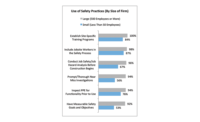...in means and methods simply because they share in the risk of the overall profitability of the project. However, depending on how the IPD contracts are drafted, designers may also absorb some liability for means- and-methods decisions based on their input, just as a contractor may absorb liability for design.
That’s what is new: IPD blurs the boundary between design and construction.
Losing the Economic Loss Doctrine
The Economic Loss Doctrine is alive and well and living in most state court jurisdictions. It is a legal defense that typically is raised by contractors to eliminate broad categories of tort-based claims and generally stands for the proposition that, if two parties are joined together by contract and there is a breach, the courts will follow the contract remedies, not the tort remedies, in the absence of (1) personal injury, (2) third-party property damage or (3) facts giving rise to the breach of a legal duty owed independently of the contract.
Generally, the Economic Loss Doctrine is not applied to designers because courts view their liability as arising out of both the contract and the professional relationship. With the blurred line between design and construction, the IPD relationship may subject contractors to an increased risk of tort liability; previously, there was little or none. This risk could be significant and needs to be addressed in the contract as well as with suitable insurance.
‘Fluff’ Language
Some of the new language in an IPD contract is designed to inspire cooperation among team members. One often-stated criticism of the IPD contracts is that they contain this “Go, team, go!” type of language. Examples from actual IPD contracts include “members shall act as a team,” members “affirm their commitment,” members agree to “pursue the Owner’s objectives,” “collaborating with all members of the design team,” agreeing to make “reliable promises,” “promissor shall accept the reasonable legal consequences,” the IPD members will “be expected to reasonably share information and actually promote harmony, collaboration and cooperation,” and the like.
It wasn’t lawyers who elected to include this type of language.
Many homegrown IPD contracts began with a traditional platform in which the “fluff” language was edited into the document. This fluff does not make the contracts unenforceable, but it does make portions of the contract difficult to enforce. Fluff language muddies issues that would otherwise be clear and makes portions of the contract difficult to enforce. Courts are required to look at a contract as a whole.
A court will have more difficulty interpreting what used to be clear and unambiguous because, to consider the contract as a whole, the fluff language must be considered. This means the uncertainty factor applies not only to the new fluff language but also to the provisions which have developed time-honored meanings. Fluff language is therefore a legitimate concern.
Another concern with fluff language is it may create an ambiguity in the contract; that is, it may create a condition in which a particular term or clause is susceptible to two legitimate meanings. So, well-intended fluff language may provide some very real but unintended consequences.
Some of the fluff language may not be needed. What many people do not know is that, in most jurisdictions, most contracts carry an implied covenant of good faith and fair dealing, regardless of whether or not such language is written into the contract.
The solution to the problem with fluff language is really simple: get rid of it. It isn’t needed for an IPD contract to be successful.
Third-Party Design Liability
Another major issue that does not appear to be getting much air time is third-party liability for defective design.
What if a hotel pedestrian bridge, designed and built under an IPD contract, collapsed and caused personal injury and property damage. Under IPD, with various contributions and levels of cooperation in the design process, the blurred IPD lines of responsibility may mean that both the contractor and the design team will share culpability. Furthermore,...




Post a comment to this article
Report Abusive Comment